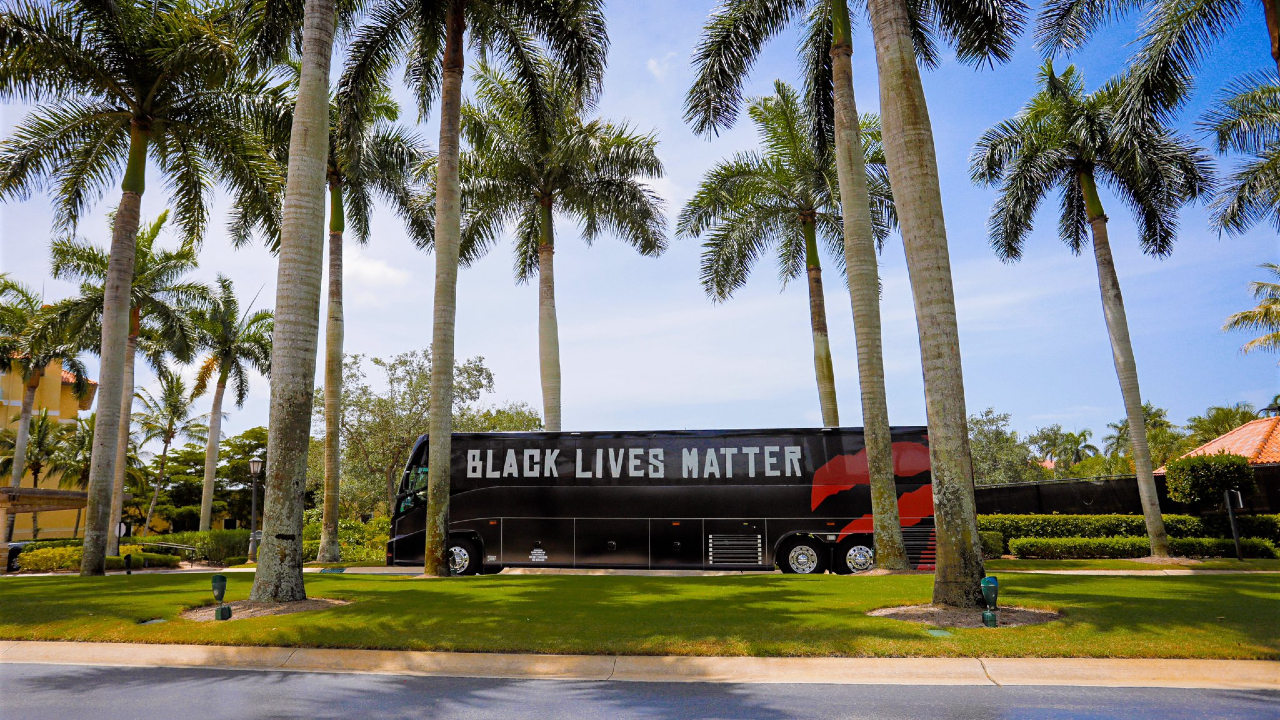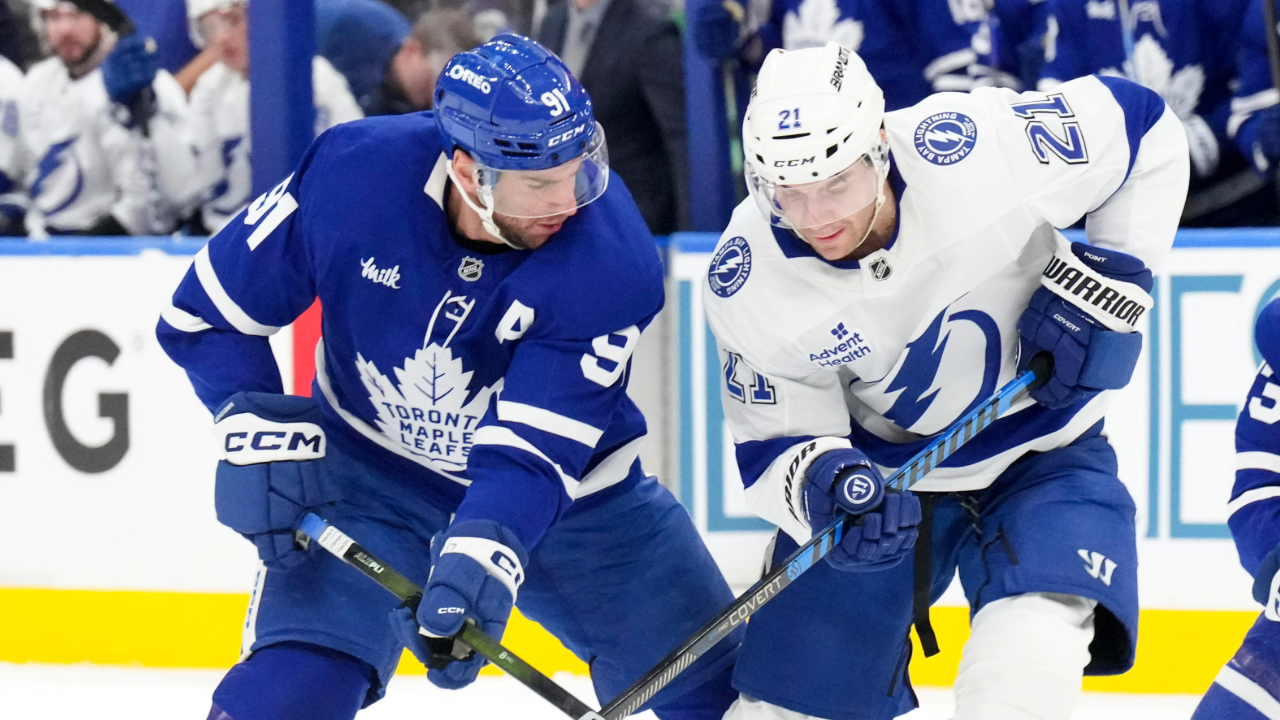
TORONTO — On Sunday afternoon in Kenosha, Wis., a city of about 100,000 people on the shores of Lake Michigan between Milwaukee and Chicago, a Black man named Jacob Blake was shot at least seven times by police in front of his young children.
Less than 48 hours later and thousands of miles away at the Walt Disney World Resort where the NBA has reconvened to complete the 2019-20 season, determined to conduct business amidst a global pandemic and against a backdrop of what seems like an epidemic of police violence against the Black community, waves of grief and frustration were washing over players and being expressed in ways rarely heard.
And on those waves is a renewed urgency to act, to do more. To make things stop and make them better. To make Black Lives Matter something more than a slogan painted on hardwood.
Suddenly the playoffs – the most important dates on the basketball calendar and the entire reason heaven and earth have been moved to resume the NBA season – seem secondary, trivial even.
Raptors fans have been eagerly anticipating a playoff series with the Boston Celtics for months, even years. And now that it’s here, the Raptors were too, but then a video surfaces and the emotions are rubbed raw and now a second-round series doesn’t have the same ring to it.
“Coming down here and making the choice to play was supposed to not be in vain,” said Raptors guard Fred VanVleet. “But it’s just starting to feel like everything we’re doing is just going through the motions and nothing’s really changing, and here we are again with another unfortunate incident. So my thoughts today are with that man and his family, and just wrapping my mind [around]what they’re going through.”
When the NBA and the NBA Players’ Association were negotiating the circumstances that would allow the season to resume after being shut down due to the COVID-19 outbreak back in March, the players placed a condition on their participation: The league, teams and broadcast partners were expected to use the return to play as a platform to amplify social justice concerns and messages voiced in the Black Lives Matter protests that arose in the wake of the killing by police of George Floyd in Minneapolis on May 25.
It’s why Black Lives Matter is painted on the courts so prominently and players are wearing social justice-themed messages on the backs of their jerseys and using media sessions to talk about the need for justice in the death of Breonna Taylor and of other victims of police violence.
But at the moment none of it seems enough.
If using the platform provided by the NBA can’t spark meaningful change, then what if the players take the product from the platform?
The Raptors met before their practice Tuesday to share their anger, frustration and grief, with head coach Nick Nurse ready and willing to simply listen.
Among the solutions discussed, according to both VanVleet and Norman Powell, was the possibility of a boycott of upcoming playoff games to attract even more attention and put even more pressure on those who are in position to make change.
“It’s been talked about,” Powell said. “There are a lot of things that are being talked about in how to approach this sensitive issue. I think everybody’s at the point of sitting up here and saying Black Lives Matter and sitting up having discussions and Zoom calls and this, that and the other, putting apparel on, that’s not getting the job done. Taking the knee from the anthem, that’s not getting the job done. It’s starting to get washed out.
“I feel like Black Lives Matter is just another part of conversation now because you see it so much. It’s everywhere. Now it’s just in the daily conversation. It’s kind of getting to the point where I see Black Lives Matter, and it’s an everyday thing [but]something has to happen to where you are forcing those people who can affect and make the change to do something.”
The Raptors series against the Celtics has the potential to be a classic, bringing together two teams that have been butting heads for years but have never met in the playoffs. Game 1 is scheduled for Thursday night, but it seems far away at the moment.
“I don’t’ really care about [the Celtics]right now, to be honest with you,” said VanVleet. “…Right now, today, on Tuesday, I could care less.”
What he cares about, and what NBA players in the bubble – from LeBron James on down – care about is what they can do to help solve an issue that stands on hundreds of years of history.
Could not playing be a solution?
“We knew coming here or not coming here was not going to stop anything but I think ultimately playing or not playing puts pressure on somebody,” said VanVleet. “So, for example, this happened in Kenosha, Wis., if I’m correct?
“Would it be nice if, in a perfect world, we all say we’re not playing, and the owner of the Milwaukee Bucks – that’s going to trickle down – if he steps up to the plate and puts pressure on the district attorney’s office, and state’s attorney, and governor, and politicians there to make real change and get some justice.
“I know it’s not that simple, but at the end of the day if we’re gonna sit here and talk about making change then at some point we’re gonna have to put our nuts on the line and actually put something up to lose.… I’m just over the media aspect of it, it’s sensationalized, we talk about it every day … but it just feels like a big pacifier to me.”
It’s impossible to exaggerate how raw and wounded both VanVleet and Powell sounded and it seems fair to say they’re not alone. Similarly impassioned remarks have been made by the likes of James and his Lakers teammate Kyle Kuzma, and Milwaukee Bucks guard George Hill, among others.
VanVleet grew up in Rockford, Ill., a medium-sized midwestern city not far from Kenosha. His father was killed when he was five, caught up in drug violence. His stepfather is a police detective. VanVleet hasn’t seen his young family in nine weeks and now this.
“You can’t really make sense of it,” VanVleet said. “I mean, you can, but it’s not the most logical thing in the world for people to be getting killed because of their skin color. The situation itself, it’s tough a little bit. You get a little survivor’s remorse. You feel a little guilty. That’s just natural as somebody who lives a very privileged and blessed life. Obviously, I worked to be here, don’t get me wrong, but because I make millions of dollars doesn’t make me any more worth of a person than anyone else.
“So, you feel guilty sometimes, and that’s normal, and you try to use your platform and your reach and your resources to contribute to other people’s lives and making their lives better, and that’s about as much as you can do in the moment.
“…[But] I think you can’t underestimate the trauma that we take in on a daily basis from our phones and watching these videos.… Every time it’s fresh it brings back old stuff, re-opens wounds. My father was killed when I was young so it’s just a lot of things that go into taking all this information in.”
Athletes are trained to act and the urge is only stronger now, it seems.
“Everybody knows where we stand, but what’s next?” said Powell. “Because this is still happening and so how do we force the hand? So, until somebody does something truly dramatic and kinda goes Black Panther and carries your own arms and fights back with the police and things like that, nothing’s gonna change. And then, if we do that, there’s another narrative where now there’s a reason why we’re viewed that way because we’re taking the by-any-means-necessary route that we’re gonna protect ours if they’re not gonna protect us.
“And if we go and fight back then we’re gonna have another issue on our hands, [so]how do we resolve this in the right way to force those lawmakers, those legislators, those senators, governors and so-on and so-forth in the government to put the rules and laws in place that prevents this from happening? And that’s the steps and things that are being talked about: how do we demand more now? In those conversations and building blocks, how do we formulate a plan to create change and make this happen immediately?”
The playoffs are here and there are seemingly big games to play.
But for the Raptors and likely the majority of the NBA players in the bubble, other things – life, death, justice and fairness – are looming as much more important.





